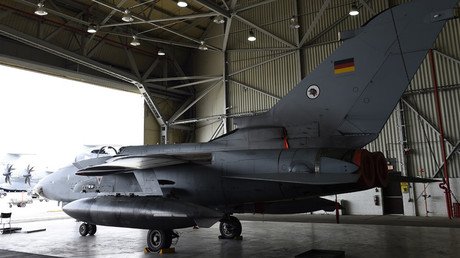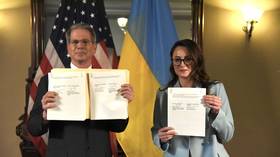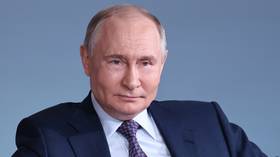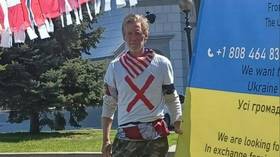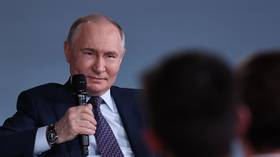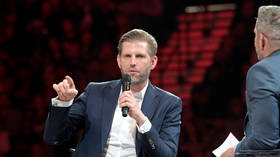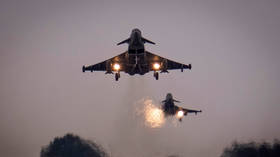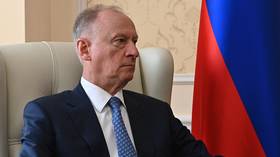‘NATO-Turkey conflict reveals cracks in Western military alliance’
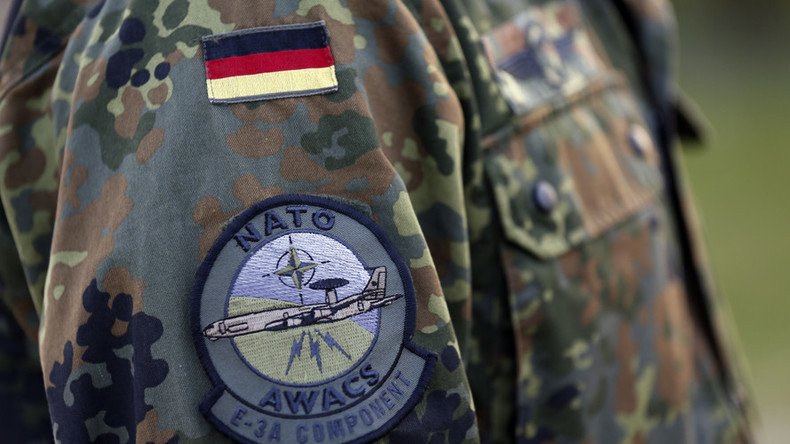
Something dire is happening within NATO in Brussels and Ankara, which is worrisome because Turkey is the second largest military power in that alliance. It is not Montenegro, Jan Oberg, Director of the Foundation for Peace and Future Research, told RT.
Ankara has refused German lawmakers access to troops stationed at the Konya air base in south-western Turkey.
Konya is both a military air base and a public airport. It is also a major training hub for the Turkish air force, and both NATO and German troops maintain a presence there. German politicians have also been denied access to the Incirlik base. At the moment German troops are being withdrawn from there.
RT: How significant is it that NATO is now trying to mediate in the dispute? Is this escalating the situation even more?
Jan Oberg: If you look at the whole conflict formation between NATO and Turkey, we are in a situation where Turkey is in the center of a number of conflicts. First of all, NATO, is supposed to defend democracy. Turkey is leaving democracy – you just listen to the speeches of President Erdogan here at the anniversary of the coup attempt.
Turkey bars German MPs from inspecting Konya NATO airbase https://t.co/8u7nzlOKr7pic.twitter.com/326UjEcLO9
— RT (@RT_com) July 15, 2017
Secondly, there is a huge conflict in Syria. For instance, Turkey has just moved in to support Qatar, which was the one party in that conflict with Saudi Arabia that the US opposed. If you look at the very serious thing from a NATO point of view, Turkey is working now with Russia particularly on the Syrian thing. If you look at Syria again, the West is supporting the Kurds, which is a hate object of Erdogan and Turkey. You can keep on like this. If I were Jens Stoltenberg, I would indeed be very, very concerned. He is not just urging Germany and Turkey to meet; I think he must have been shouting down the phone today, because something very, very serious is happening within the alliance, and Turkey is the second largest military power in that alliance. It is not Montenegro.
RT: What options does NATO have? Are they afraid Turkey might break away from the alliance? What do you think they’ll be saying to Turkey?
JO: There is in any organization a limit to how much a country, or a member of an organization – be it a political party, or association, or whatever – can go straight against what is the official policies, or the official rhetoric, or the formulation of goals of that organization. Why should we take for granted that NATO is something that will exist forever? Everybody thought the Warsaw Pact would exist forever; it took a few days, a few weeks, a few months, and then it was over. I am not saying it is going to happen the same way as fast, but if I was in NATO, and also looking at the huge conflicts between the US and the European allies - the US, and Angela Merkel and Germany – the huge conflict about how much to pay to whom, and President Trump’s argument of ‘You in Europe owe us a lot of money.’ If you add these all up, this is a serious crisis in an alliance that is supposed to have one policy, work together, if it was really needed. So I would be very concerned.
RT: What do you think NATO could do to try to appease Turkey at this stage?
JO: I don’t think there is much that can be done. Turkey is going its own way at the moment, and it is doing things that would have been unheard of. If somebody had said that five years ago – the leading member of the alliance would do what it has done the last few years, people would have been laughing and saying: ‘No, no, no that was not possible within the alliance…’
Turkey won't tolerate Kurdish state & ‘terror havens’ on its borders – Erdogan https://t.co/RyZyd12Oe8pic.twitter.com/i7sbqicEd8
— RT (@RT_com) July 9, 2017
You can appeal to dialogue; you can appeal to good behavior and manners; you can protest a little bit here and there, but there are cracks now in that alliance, and that will definitely be something that takes a long time to repair if at all possible. Now you have other countries, other possibilities. You have a huge conflict about what to do with Iran, where the US is pulling in one way, obviously kind of planning to attack Iran sooner or later with all the Iranophobics in Washington around Trump. And you have a Europe that says: ‘Let’s stick to the nuclear deal. Let’s not do these things, let’s work and invite Iran into it, which we promised to do, instead of breaking our promises as you do in Washington.’ These are serious high-level political issues.
The statements, views and opinions expressed in this column are solely those of the author and do not necessarily represent those of RT.
